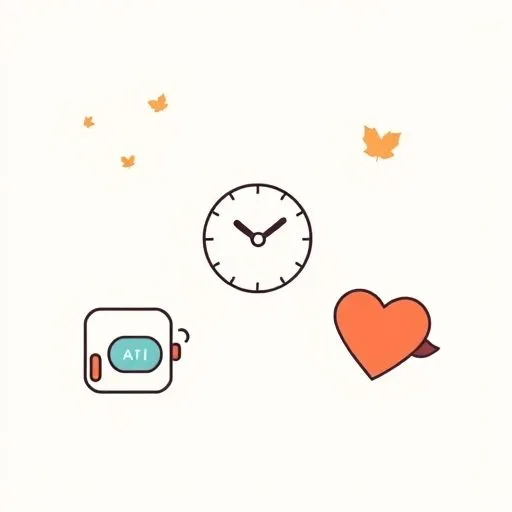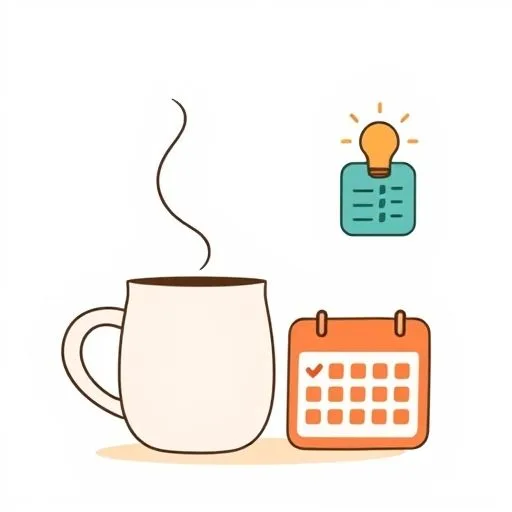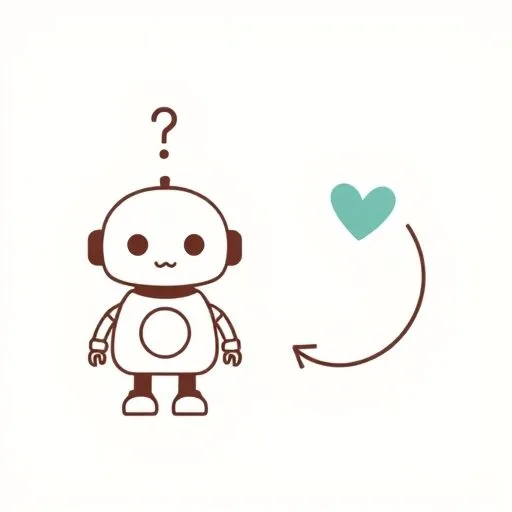
You know that moment—the clock’s ticking louder, a kid’s missing sock just became a crisis, and out the corner of your eye, you see her quietly ask the AI calendar to reschedule the dentist appointment. We’ve all watched her juggle these invisible threads, haven’t we? Modern families aren’t just balancing work and play—we’re navigating a world where AI can order groceries, plan our week, but still can’t hug us when we’re fried.
How AI Actually Saves Our Sanity (Before the Coffee’s Brewed)

It’s not grand gestures. It’s that 6:45 AM moment when the smart home dims the lights before the toddler’s meltdown about breakfast. It’s the AI calendar spotting that your preschooler’s field trip overlaps with a critical meeting—and giving you a heads-up before the chaos hits.
We’ve watched these tools become her secret sidekick—silently reorganizing the week’s schedule, suggesting healthier lunchbox ideas, or even nudging the thermostat to warm the house just as she’s dragging home from work, arms full of groceries.
But here’s what we’ve noticed: when AI chips away the mundane tasks, she suddenly has space to breathe. To laugh louder when the kid spills cereal. To linger in bedtime stories. She’s still the architect—the AI just hands her the tools she didn’t know she could have.
The AI’s Blind Spot—And Why That’s Okay

But let’s be real—we’ve all seen the AI’s awkward stumbles, too. When it suggests a meal prep plan ignoring the kid’s new allergy, or when she’s exhausted and the robot cheerfully chirps, “You’ve got this!” That’s when AI feels like a square peg in a round world.
But here’s where the magic happens—we’ve watched her navigate these tech hiccups with such grace, switching between calm tech-fixer and warm human, like when she chuckles at the AI’s “family-friendly” movie suggestion for game night.
Because that’s the thing: AI can’t tuck the kids in, can’t read the way her voice drops when she’s tired, but it can free up the minutes needed for her to do the real work—the stuff that matters.
That’s the balance we’re all chasing, isn’t it? Letting the machines handle the mindless tasks so we’re free to do the human ones—the eye contact, the whispered “how was your day,” the hugs that tech can’t replicate.
When AI Turns into the ‘Family’s Newest Helper’—With a Human Compass

Here’s where we’ve found our sweet spot: tools that don’t demand, but serve. Like the AI checklist app that reminds us to pack sunscreen, so we’re not scrambling after the last-minute meltdown. Or the budgeting app that flags when the grocery bill is eating into the vacation fund.
But here’s the secret sauce—we’ve seen her sprinkle these tools with humanity. Teaching the AI to recognize her child’s pre-school lunch preferences, or tweaking it to remind her of her own self-care time. It’s like having that helpful ajumma neighbor who reminds you about school events, but in digital form.
It’s not about outsourcing the parenting—it’s about letting AI carry the heavy boxes so we can carry the kids. We laugh together, honestly, when the AI fails to predict her mood. But that’s the beauty—it’s a tool, not a replacement.
And in that clunky, imperfect way, it’s become our family’s third hand—a quiet, sometimes silly helper, trying to make her load a little bit lighter.
The Quiet Space AI Creates for What Matters Most

So, do we take life advice from AI? Not really. But we’ve learned to let it shoulder some of the weight of modern life. That moment when she’s not rushing to update the calendar because she’s already got that moment—sitting with the kid, watching the clouds morph into shapes—that’s the AI’s gift.
It’s not magic. It’s hours. Minutes. It’s the pause we’ve all been needing. And when we’re honest about what AI can and can’t do—like when we hug her after a long day and say, “Hey, let’s turn off the reminders and just be” —we’ve found a rhythm that feels… balanced.
The AI is humming, but the heart of the home? Still her, and always will be.
Source: How Smart Is Apple Intelligence, Really? I Tested Every Feature, PCMag UK, 2025-09-23
